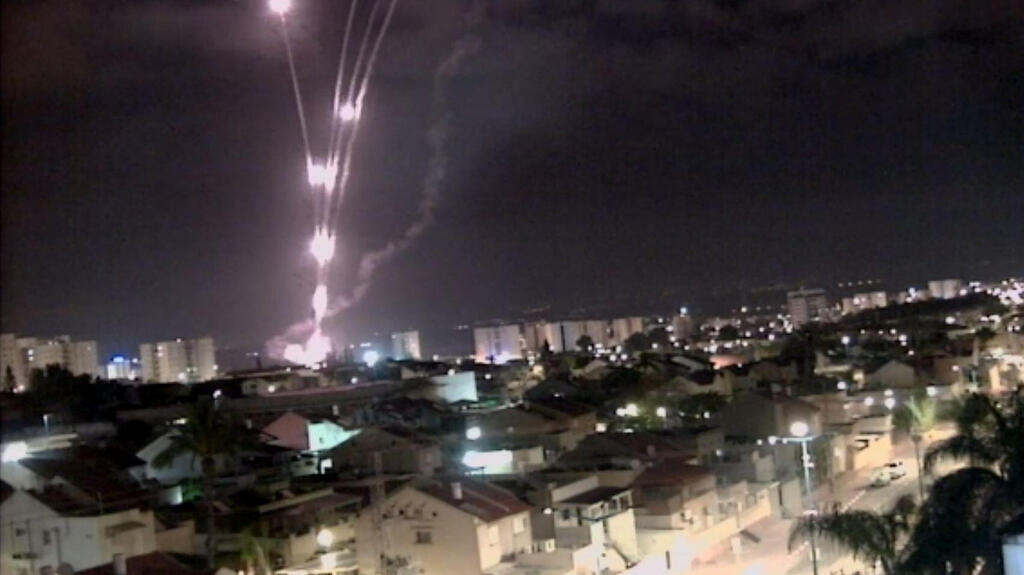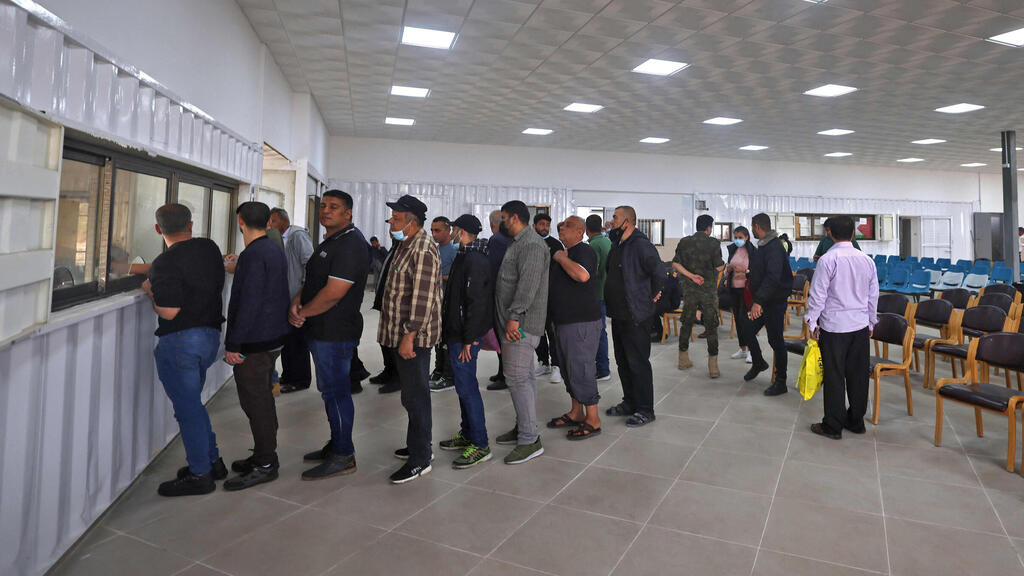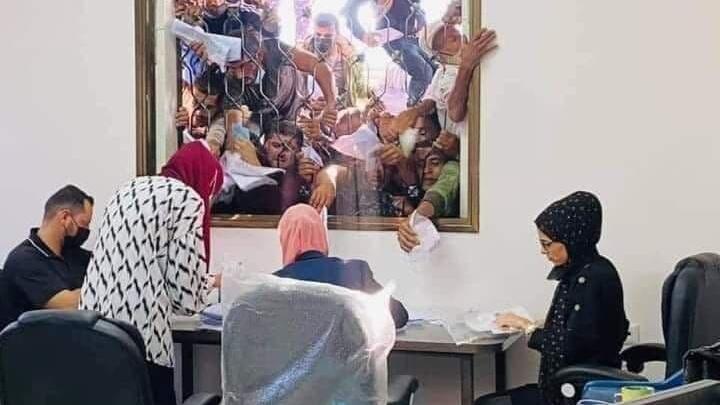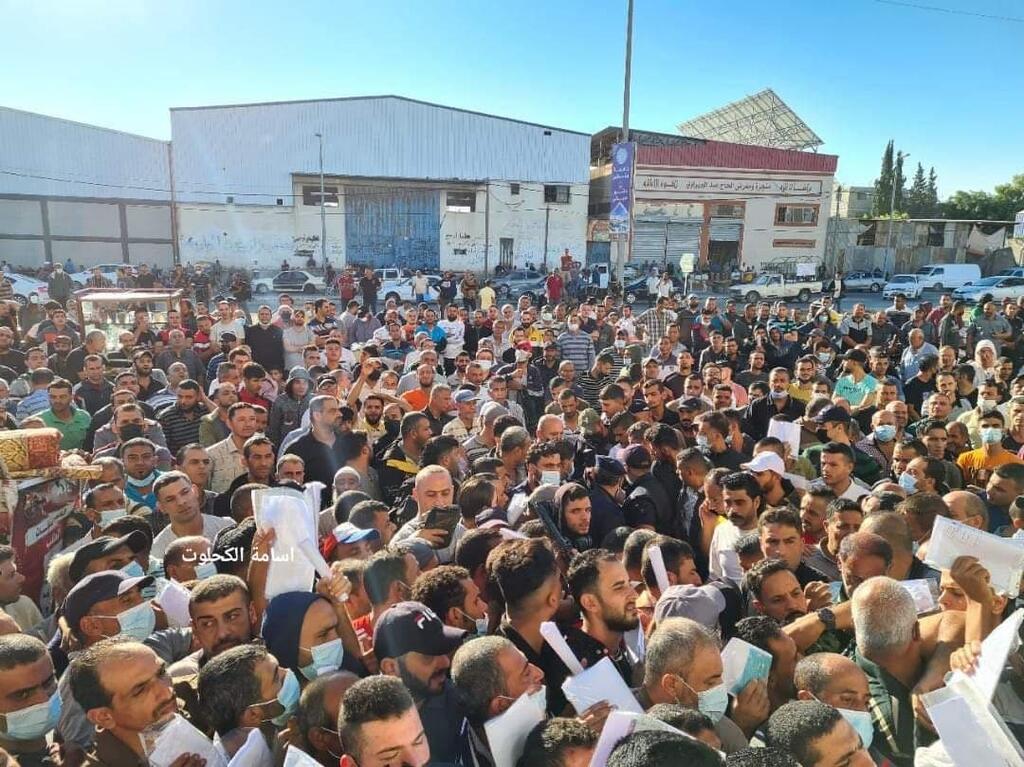Israeli authorities on Wednesday finally okayed to increase the number of work permits for Palestinians from the Gaza Strip after a security delay.
Now, an additional 2,000 workers will be able to enter Israel for employment. The decision was made following an assessment of the security situation, according to COGAT - the Defense Ministry body responsible for civil affairs in the Palestinian territories.
“All the latest civil measures regarding the Gaza Strip are dependent on the continued maintenance of stable security over time, and their expansion will be considered in light of the situation as evaluated,” COGAT said in a statement.
The ministry has signed off on the tentative plan to raise the number of Gaza permits last week, but after militants fired a rocket toward Ashkelon shortly after 3am on Saturday, Defense Minister Benny Gantz ordered the increase frozen.
The rocket, the first from Gaza since April, was intercepted by the Iron Dome aerial defense system. Israeli military aircraft struck a number of Hamas targets in the Strip in response.
4 View gallery


Archive picture of an Iron Dome system activated to intercept a rocket from Gaza in April
(Photo: Rafi Sasson)
Following the May 2021 war between Israel and Palestinian militants in Gaza, it was agreed, under the auspices of multiple mediators, that 30,000 Gazan workers would be allowed to work in Israel, but "the process of issuing entry permits by Israeli authorities is progressing very slowly, contrary to what was agreed upon,” said Sami al-Amasi, head of the Palestine General Federation of Trade Unions in Gaza, before Saturday’s events.
Amasi said media coverage of Israeli easements toward Gaza, most notably the latest planned increase in the number of work permits, “greatly exaggerates” what is actually happening on the ground.
“The highest number of permits obtained by workers to date is 12,000, but the actual number of those who left for Israel, including ‘merchants,’ is far less than that as many permits are being suspended on a daily basis,” he said.
So-called merchant permits are easier to obtain but also more costly to the worker.
The alleged Israeli easements, according to Amasi, “aim only to address the Western media and portray Israel as the generous side that seeks to help the residents of Gaza, especially since U.S. President Joe Biden is visiting the region soon.”
Experts say that even if 14,000 Gazans entered Israel for work every day, it would not be enough to make a significant contribution to Strip’s ailing economy due to overlapping financial and political crises.
“Since the resumption of issuing work permits to Israel, there has been no improvement in any of the economic indicators or in the living conditions of the Gaza residents,” said economist Mazen Alijla.
Alijla attributes the economic standstill to the serious and structural difficulties that have accumulated in Gaza over the past 15 years, because of both the Israeli-Egyptian blockade and the internal Palestinian division between the Strip and the West Bank.
According to a fact sheet released by Al Mezan Center for Human Rights last Tuesday, titled “15 Years Too Long,” during 15 years of Israeli blockade on the Gaza Strip, “the living conditions of Gaza residents have deteriorated significantly: In 2021, the poverty and unemployment rates stood at 53% and 47%, respectively, while the food insecurity rate was 64%.”
“Palestinians’ freedom of movement has been severely restricted,” the report continues. “Between June 14th, 2007 and June 14th, 2022, they [Israeli authorities] arbitrarily arrested 204 Palestinians, including 48 higher education students and employees enrolled in external training courses and colleges and 85 merchants.”
Human Rights Watch is also critical of Israel.
“Israel’s sweeping restrictions on leaving Gaza deprive its more than 2 million residents of opportunities to better their lives,” Human Rights Watch said in a report released last Tuesday, on the 15th anniversary of the 2007 closure.
“The closure has devastated the economy in Gaza, contributed to fragmentation of the Palestinian people, and forms part of Israeli authorities’ crimes against humanity of apartheid and persecution against millions of Palestinians,” the report continues.
Omar Shakir, Israel and Palestine director at Human Rights Watch, said, “Israel, with Egypt’s help, has turned Gaza into an open-air prison. As many people around the world are once again traveling two years after the start of the COVID-19 pandemic, Gaza’s more than 2 million Palestinians remain under what amounts to a 15-year-old lockdown.”
Alijla said that the only way for the Strip’s economy to noticeably improve would be “to first, end the Palestinian division at first because, without an effective political framework that has a vision for economic development and sets policies to achieve this vision, any opportunities or resources will be wasted.
The second requirement for progress would be “to end the Israeli blockade and restrictions on the Gazan economy, resources, and freedoms of residents,” Alijla said.
The story is written by Sanaa Alswerky and reprinted with permission from The Media Line




